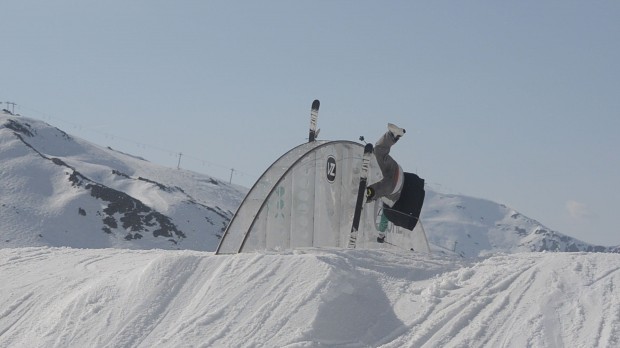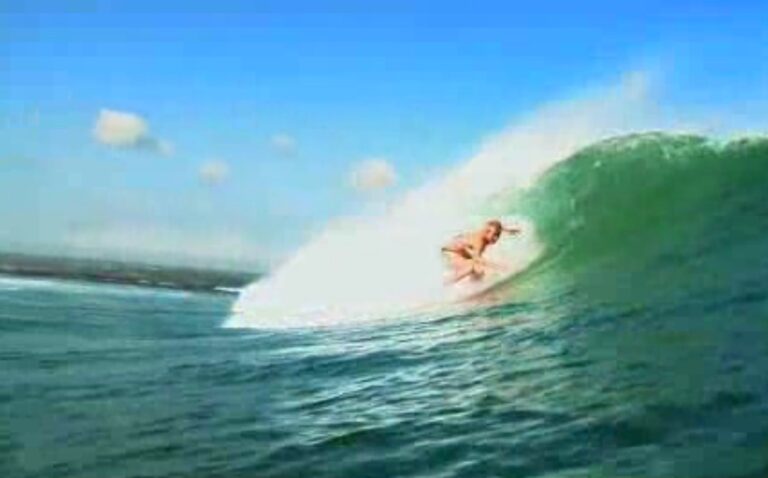
Action sports are kinda risky activities, which you will know all the best if you ever tried one yourself and bruised your knees / elbows / behind or any other body part that came in involuntary and unplanned contact with the ground. Yet all those broken bones, sprained joints and colorful bruises never seem to stop us from going back – and there is good reason for that…
Words by Faith Robinson
Yesterday, I slipped off my skateboard in a mini ramp, and have torn my MCL, which particularly bothers me as a skiier. Since the severity of the injury is still uncertain, I’m looking at anywhere between a week and a few months rest before I can start being active again. Whilst the majority of the time we spend participating in action sports is problem-free, we’re all aware that one misjudged or unlucky moment of error has the potential to ruin your plans – and in some cases, change your life. With this in mind, I ask the crucial question: is it worth it?
I ask the crucial question: is it worth it?
Generally, we’ve all got something we like doing the most – an activity by which we define ourselves, or something we identify with as our own. The things we like doing are usually the things that we’re good at, and of course, through practice and time and effort, we get better and better at doing those things. We develop technique, new skills and confidence, until we reach a peak at which we can consistently perform and push. And regardless of whether that peak is an average or exceptionally high level, we really enjoy that activity, and in some cases we completely live for it.
These aspects themselves depend on a lot of things: location, lifestyle, training and gear accessibility all impact how far people can push their sport –not to mention the necessary skill requirements needed to get started. But when that activity includes a pretty high risk of injury, developing your performance past that difficult entry level can be hard work – physically and mentally – and even when you’re feeling confident, some of the risks often remain.
To those who do not participate, it is easy to assume that these risks somehow produce that ‘adrenalin rush’ on which we get hooked.
To those who do not participate, it is easy to assume that these risks somehow produce that ‘adrenalin rush’ on which we get hooked: that acknowledging the inherent danger of your chosen sport and overcoming it is the main reason to enjoy that activity. This may be true for some people. But for the majority of people I have had the pleasure to ride with, the reasons to participate in freestyle skiing; snowboarding; surfing; longboarding; skating; wakeboarding or whatever else, come from a much more sincere and personal place. For most, I believe that the ‘adrenaline rush’ that so dominates the action sports industry comes instead from the satisfaction of doing and learning – especially if you’re with great people in great places. The thrill I get from landing a new trick has nothing to do with an acknowledgement of the potential risk involved, but rather that I’m stoked to have overcome the mental difficulties that trying something physically new can create.


Having said this, recognising limits and consequences is an absolutely essential part of all of the previously mentioned sports (amongst others). There’s a fine line between being confident and being stupid, and for many, understanding this distinction can be more difficult than physically participating in the sport itself. Equally, not having enough confidence can easily result in injury; dropping into something feeling nervous is very different to approaching something that you really don’t think you can pull off. As I am beginning to illustrate, the individual challenges we all face through the participation of action sports are complex, and in many ways, define our characters. Yet perhaps it is the way we deal with what happens to us in those unlucky moments of error that matter more than anything else.
There’s a fine line between being confident and being stupid, and for many, understanding this distinction can be more difficult than physically participating in the sport itself.
Hitting big features, hills or waves is different for everybody, and those that don’t respect their environment also disrespect their bodies. But injury can even affect those who dedicate their lives to learning their limits – in extreme situations as well as very basic ones. When the smallest mistake can disrupt your future, the decision to return to a sport after long-term injury and recovery can be incredibly difficult to make, particularly when your attitude towards that sport has been altered through some serious pain. It is this kind of situation that totally highlights the critical, mental component of action sports, as well as the passionate enthusiasm that drives those who excel to do so. Like weighing up whether or not to try something new, considering the discomfort of injury against the elation of achievement – in terms of returning to your sport – is easier for some and harder for others.
But what I believe matters the most is being honest with what it is that you love, and what it is that you’re good at. Finding a comfortable level can many falls and many injuries, but feeling the joy that your chosen sport gives you is something that should never be questioned and that will always be worth it. I’m sure many people might disagree with such a concluding sentiment. However, as a confident rider, I’ll certainly be getting back on my board and on my skis as soon as possible – although I might be a little bit more careful in the future.
What I believe matters the most is being honest with what it is that you love, and what it is that you’re good at.





